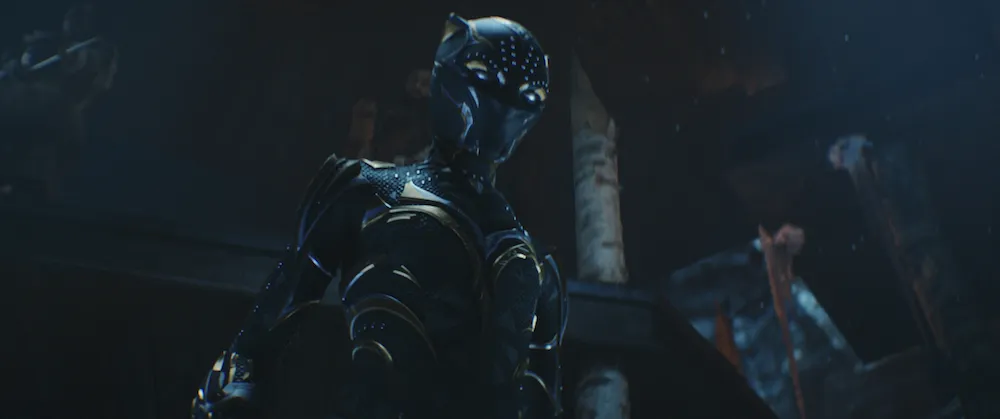 When we last left teenage boy wizard Harry Potter (Daniel Radcliffe) and his friends Ron Weasley (Rupert Grint) and Hermoine Grainger (Emma Watson), the wizarding world was becoming increasingly darker. Not only had Harry witnessed the death of his Uncle Sirius, the evil Lord Voldermort’s return moved from being mere rumor to actual truth.
When we last left teenage boy wizard Harry Potter (Daniel Radcliffe) and his friends Ron Weasley (Rupert Grint) and Hermoine Grainger (Emma Watson), the wizarding world was becoming increasingly darker. Not only had Harry witnessed the death of his Uncle Sirius, the evil Lord Voldermort’s return moved from being mere rumor to actual truth.
In Potter’s latest adventure, Harry Potter and the Half-Blood Prince, things are only getting worse. Voldemort is tightening his grip on both the Muggle and wizarding worlds and Hogwarts is no longer the safe haven it once was. Suspecting that danger may lie within the castle walls, Harry works with Professor Dumbledore (Michael Gambon) to find the key to unlock Voldemort’s defenses. The duo attempt to find their solution first through a collection of stored memories in Dumbledore’s office and perhaps in the memory of the well-connected and unsuspecting Professor Horace Slughorn (Jim Broadbent), Dumbledore’s old friend and colleague who may hold crucial information about the Dark Lord. If the forces of evil aren’t enough to contend with, the sixth-year students of Hogwarts are also under attack from altogether different adversary from within: raging hormones.
The normal pattern of a film franchise is to start strong and go downhill from there, no matter how many movies are in the series. The Harry Potter films has been the exception. The series started weak but picked up considerably with the third entry, Alfonso Cuaron’s terrific 2004 entry The Prisoner of Azkaban. While Cuaron’s film and the two subsequent entries, 2005’s Goblet of Fire and 2007’s Order of the Phoenix, kept the spirit and general storyline of JK Rowling’s beloved novels, they were not afraid to change things up in order to give the films an identity separate from their literary source (a problem that plagued the first two films).
A fair amount of subplots, characters and situations were jettisoned, much to the chagrin of fans worldwide. In the end the slimming-down effect proved to be of great cinematic benefit, especially when it came to Phoenix, a film whose literary source was quite good, but far too long for its own good. The practice of downsizing the material for maximum box office, I mean, cinematic impact, continues with Half-Blood Prince.
David Yates is a very talented director. He knows how to properly tell and pace a story, develop the characters and get great performances out of his casts. If you only know Yates’s work from the Potter films, you owe it to yourself to see his 2003 British series State of Play. His work on Order of the Phoenix proved to be as impressive as his work on Play, albeit on a much grander scale. You can complain all you want about the downsizing of the plot, but Yates presented a fast-moving, involving and very entertaining movie that was easily the best in the series after Azkaban.
Half-Blood Prince finds the British helmer calling the shots again, albeit to slightly lesser results. As he did on Phoenix, Yates handles the cast perfectly; getting solid performances out of one and all (Jim Broadbent makes for a fine addition to the ensemble) allowing the cast members to progressively flesh out their well-known characters. Despite the film’s rather talky 153-minute runtime, Yakes keeps the film’s events moving along at a brisk, satisfying pace. The opening attack sequence on downtown London is thrilling; the game of Quidditch makes a welcome return and the overall atmosphere is very faithful to the descriptions in Rowling’s novel.
In the end though, the movie feels a bit… anti-climactic. Make no mistake; The Half-Blood Prince is a very entertaining film, easily one of the best of the summer thus far. Yet, one cannot help but feel a bit underwhelmed when the end credits come up, a sizeable issue given how this chapter concludes. In the novel, the conclusion packed quite an emotional punch and nicely set up The Deathly Hallows. On film, the events merely transpire, omitting one key event en route to ending the film on a quiet note. One could say that already knowing what happens might have lessened the impact, but that did not seem to lessen the impact the conclusions of Goblet of Fire or Order of the Phoenix any.
Yates’ lackadaisical handling of the conclusion aside, the main problem that Prince faces is the screenplay adaptation by Steve Kloves, who has adapted all but one (Order of the Phoenix) of Rowling’s novels for the screen. Kloves keeps enough of the novel’s darkness and impending danger, but he lessens the story’s overall tone by upping the comedic and romantic aspects. Both are fine in moderate doses (Ron under the influence of a love potion is a riot), but there is a certain amount of both that could have been trimmed in order to keep what I thought were the novel’s best parts: the series of flashbacks chronicling the evolution of Voldermort. Very few make it to the screen, which is disappointing given the rich backstory Rowling created. A better balance of menace and romance could have really elevated the movie’s dramatic tension and payoff quite a bit.
Considering how the previous three films have turned out, I was hoping for a little more from Harry Potter and the Half-Blood Prince. I enjoyed Potter’s sixth adventure quite a bit, but its lack of urgency holds it back from really taking off. Here’s hoping that sense of urgency returns in 2010 and 2011 when the series wraps up with the two-part adaptation of The Deathly Hallows.
-Shawn Fitzgerald


